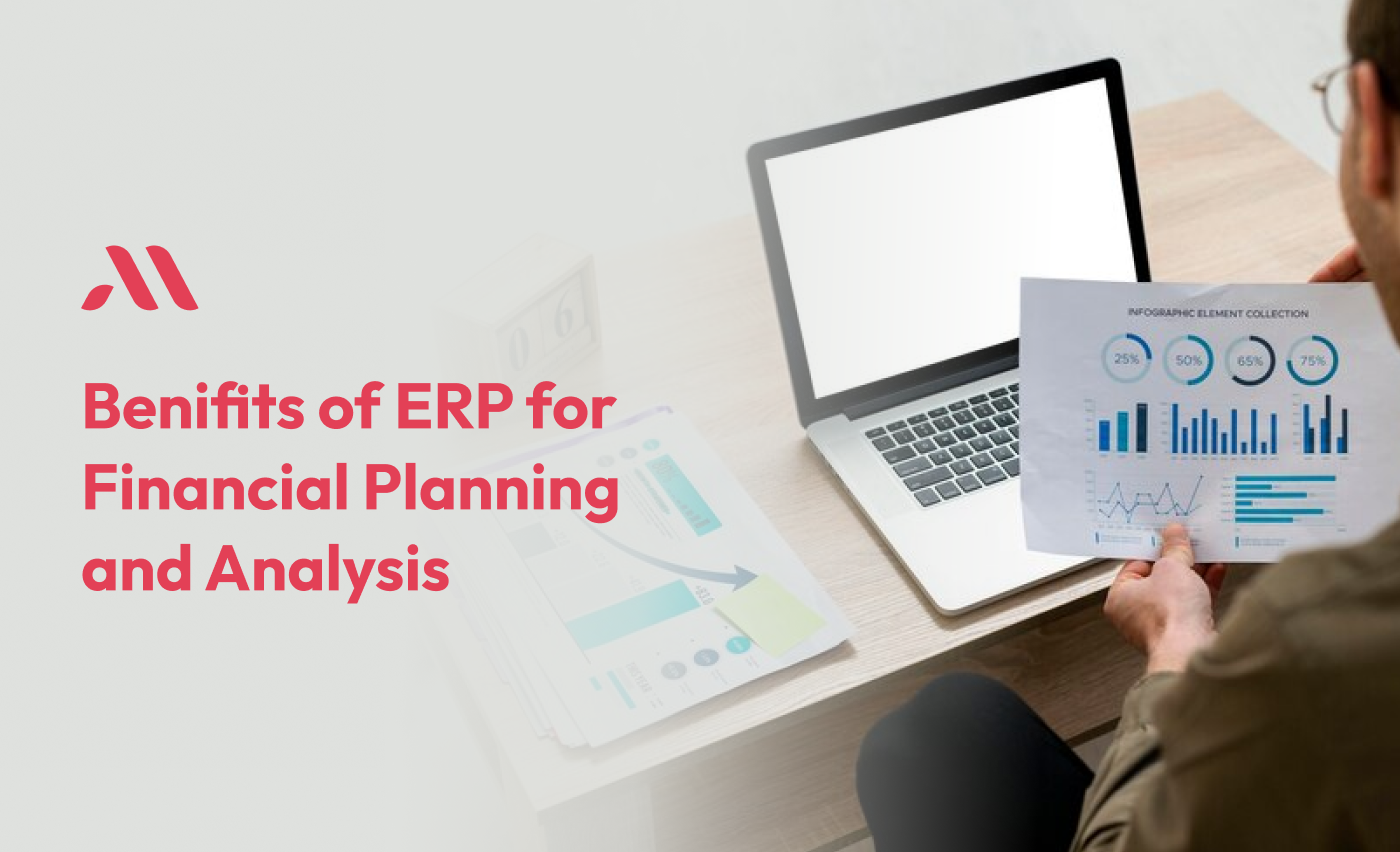Financial Planning and Analysis (FP&A) is super important for any business. It helps companies know where they are spending money, how much they are earning, and where they can save. One way to make FP&A easier and more accurate is by using an ERP System. ERP stands for Enterprise Resource Planning. It's like a super smart computer program that helps businesses manage their money, people, and products. Let's jump into the benefits of ERP for Financial Planning and Analysis.
What is an ERP System?
Before we talk about the benefits of an ERP system, let's understand what it is. An ERP system is software that helps businesses manage different parts of their operations. It brings together all the important information from different departments like finance, human resources, sales, and inventory into one place. This makes it easier for businesses to plan, analyze, and make decisions.
Benefits of an ERP System for FP&A
1. Better Data Accuracy
One of the main benefits of an ERP system is better data accuracy. When all the information is in one place, it is easier to make sure it is correct. This is very important for financial planning and analysis because even a small mistake can lead to big problems. With an ERP system, businesses can trust the data they are using to make decisions.
2. Faster Data Processing
Another advantage of an ERP system is faster data processing. Traditional methods of collecting and analyzing data can take a lot of time. But with an ERP system, all the data is available in real time. This means businesses can quickly see how they are doing and make decisions faster. Faster data processing is one of the key benefits of an ERP system for FP&A.
3. Improved Financial Reporting
Financial reporting is a big part of FP&A. An ERP system makes it easier to create accurate and detailed financial reports. These reports help businesses understand their financial health and make informed decisions. Improved financial reporting is one of the significant benefits of an ERP system.
4. Enhanced Budgeting and Forecasting
Budgeting and forecasting are essential for any business. They help businesses plan for the future and make sure they have enough money to cover their expenses. An ERP system makes budgeting and forecasting easier and more accurate. This is one of the many advantages of an ERP system for FP&A.
5. Better Compliance and Risk Management
Compliance and risk management are important for any business. Businesses need to follow laws and regulations to avoid fines and penalties. An ERP system helps businesses stay compliant by keeping track of all their financial transactions. It also helps in identifying and managing risks. This is another benefit of ERP for financial planning and analysis.
6. Increased Efficiency
An ERP system helps increase efficiency by automating many tasks. This means businesses can do more work in less time. For example, instead of manually entering data into spreadsheets, an ERP system can automatically collect and analyze data. This saves time and reduces errors. Increased efficiency is one of the key benefits of an ERP system.
7. Cost Savings
One of the biggest advantages of an ERP system is cost savings. By improving efficiency and accuracy, businesses can save a lot of money. For example, an ERP system can help businesses avoid costly mistakes and reduce the need for extra staff. Cost savings are one of the significant benefits of an ERP system for FP&A.
8. Better Decision Making
An ERP system provides businesses with accurate and real-time data. This helps in making better decisions. For example, if a business sees that they are spending too much money on a particular product, they can decide to reduce their expenses. Better decision-making is one of the many benefits of ERP for financial planning and analysis.
9. Scalability
As businesses grow, their needs change. An ERP system is scalable, which means it can grow with the business. This is important for FP&A because it ensures that businesses have the tools they need to manage their finances as they expand. Scalability is one of the key advantages of an ERP system.
10. Integration with Other Systems
An ERP system can easily integrate with other systems used by the business. This means businesses can have a complete view of their operations. For example, an ERP system can integrate with a Customer Relationship Management (CRM) system to provide insights into sales and customer behavior. Integration with other systems is one of the many benefits of an ERP system for FP&A.
11. Simplify Workflows
An ERP system helps streamline workflows. This means that tasks are done in a more organized and efficient way. For example, when a purchase order is made, the ERP system can automatically update inventory levels and alert the finance department to pay the supplier. This reduces the chances of mistakes and makes sure everything runs smoothly.
12. Real-Time Analytics
Real-time analytics is another great benefit of an ERP system. This means businesses can see their financial data as it happens. For example, if sales are lower than expected, the business can quickly find out why and take action to fix it. Real-time analytics helps businesses stay on top of their financial health and make better decisions.
13. Improved Collaboration
An ERP system improves collaboration among different departments. For example, the finance team can easily share data with the sales team, and the human resources team can share data with the operations team. This makes it easier for everyone to work together and achieve the company's goals. Improved collaboration is a key benefit of an ERP system for FP&A.
14. Better Cash Flow Management
Managing cash flow is important for any business. An ERP system helps businesses keep track of their cash flow by monitoring incoming and outgoing payments. This helps businesses ensure they have enough money to cover their expenses and avoid cash flow problems. Better cash flow management is one of the many benefits of ERP for financial planning and analysis.
15. Enhanced Security
An ERP system enhances security by protecting sensitive financial data. It has features like user access controls, data encryption, and regular backups to keep data safe from unauthorized access and cyber threats. Enhanced security is an important benefit of an ERP system for FP&A.
Also Read - ERP for Healthcare Industry - A Complete Guide
Choosing the Right ERP Development Company
Now that we know the benefits of an ERP system for FP&A, it's important to choose the Best ERP Development Company. Here are some tips to help you choose the right company:
Experience: Look for a company with experience in developing ERP systems for financial planning and analysis.
Reputation: Check the company's reputation by reading reviews and testimonials from other businesses.
Support: Choose a company that provides good customer support. This is important because you may need help with the ERP system after it is installed.
Customization: Make sure the company can customize the ERP system to meet your specific needs.
Cost: Consider the cost of the ERP system and make sure it fits within your budget.
Choosing the right ERP development company is important for getting the most out of your ERP system. A good company will help you implement the system smoothly and provide support when needed.
Conclusion
In conclusion, there are many benefits of ERP for financial planning and analysis. An ERP system can improve data accuracy, speed up data processing, enhance financial reporting, and more. These advantages of an ERP system help businesses make better decisions, save money, and stay compliant with laws and regulations. When choosing an ERP development company, consider factors like experience, reputation, support, customization, and cost.
Unlock the power of ERP for your business with MicraSol! Our expert team can develop the perfect ERP system for your financial planning and analysis needs. Contact MicraSol today to get started and see the benefits of ERP in action!
FAQS
What is an ERP system?
An ERP system is software that helps businesses manage different parts of their operations like finance, sales, human resources, and inventory. It brings all the important information into one place.
How does an ERP system help with Financial Planning and Analysis (FP&A)?
An ERP system helps with FP&A by making data accurate, processing it faster, improving financial reports, and making budgeting and forecasting easier.
What are the benefits of using an ERP system for FP&A?
The benefits include better data accuracy, faster data processing, improved financial reporting, enhanced budgeting and forecasting, better compliance and risk management, increased efficiency, cost savings, better decision-making, scalability, and integration with other systems.
How does an ERP system improve data accuracy?
By bringing all information into one place, an ERP system makes it easier to ensure the data is correct. This reduces the chances of mistakes.
Why is faster data processing important for FP&A?
Faster data processing allows businesses to see how they are doing in real time and make quicker decisions. This helps in planning and analysis.








